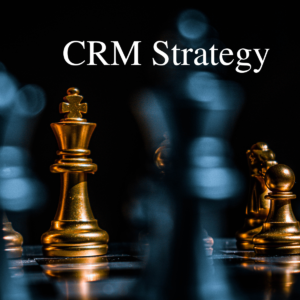Explanation
 The CRM-Customer relationship management (CRM) is a holistic approach that companies take to optimize their customer relationships and thus achieve sustainable business success. The aim of the customer relationship strategy is to better understand customers, to provide them with individual support, and to establish and maintain long-term customer relationships. By focusing specifically on the needs and requirements of customers, the aim is to increase customer satisfaction, improve the Customer loyalty strengthened and ultimately also increase the company's sales and profitability.
The CRM-Customer relationship management (CRM) is a holistic approach that companies take to optimize their customer relationships and thus achieve sustainable business success. The aim of the customer relationship strategy is to better understand customers, to provide them with individual support, and to establish and maintain long-term customer relationships. By focusing specifically on the needs and requirements of customers, the aim is to increase customer satisfaction, improve the Customer loyalty strengthened and ultimately also increase the company's sales and profitability.
The development of a CRM strategy begins with a careful analysis of the customer structure and buying behavior. This involves identifying customer segments and determining the needs of the individual customer groups. It is based on the results of this customer segmentation and determines how the company will target and serve the various customer groups.
The components
A central component of a successful CRM strategy is the Implementation of an efficient CRM software. This supports the company in capturing, managing and analyzing customer information and interactions. Thanks to central data storage, employees have a comprehensive overview of customer history and can process customer inquiries more efficiently. The CRM software also enables a targeted customer approach and the implementation of individual marketing campaigns.
The strategy also includes the definition of clear processes and responsibilities within the company. It determines how customer inquiries are processed, complaints are handled, and services are provided. Well thought-out complaint management is particularly important here, as a professional and customer-oriented response to complaints strengthens the customer's trust in the company.
It should also take into account the integration of the customer perspective in all areas of the company. Customer orientation should not only be practiced in sales and customer service, but also in product development, marketing and corporate communications. This means actively incorporating customer feedback and needs into decision-making processes and developing customer-oriented products and services.
Another important aspect of a CRM strategy is employee training. They must be made aware of the importance of a customer-oriented corporate culture and learn how to use the CRM software. Only well-trained employees can successfully implement the CRM strategy and ensure a positive customer experience.
A continuous process
The CRM strategy is a continuous process that should be regularly reviewed and adjusted. Customer needs change over time, as do market circumstances and competitive conditions. A successful CRM strategy adapts to these changes and constantly evolves to remain effective. Regular analysis of customer feedback, sales data and market trends is essential to optimize the CRM strategy and identify new opportunities.
An important step is the establishment of measurable goals and KPIs (Key Performance Indicators). These enable the company to monitor the success of CRM measures and evaluate the ROI (return on investment) of CRM initiatives. The data collected serves as the basis for informed decisions and makes it possible to increase the effectiveness of customer relationship management measures.
A successful CRM strategy also takes into account the issue of data protection and security. Customers are attaching increasing importance to the responsible handling of their personal data. It must therefore ensure that all data protection regulations are complied with and that customers' data is treated confidentially.
Depending on the size of the company, the industry and the objectives, the strategy may vary. While some companies concentrate on acquiring new customers, others focus on customer retention and increasing customer satisfaction. The CRM strategy must therefore be customized and individually tailored to the specific requirements and objectives of the company.
Another important component in the CRM strategy is customer communication. Customers expect to be addressed consistently and personally via various channels such as e-mail, telephone, social media or personal contact. The CRM strategy should therefore ensure seamless integration and coordination of all communication channels to create a consistent customer experience.
Social CRM as a component of the CRM strategy
In today's digital era, so-called social CRM is becoming increasingly important. This involves the integration of social media into the CRM strategy, customer feedback and interactions on Platforms like Facebook, Twitter or Instagram to capture and use. Social CRM enables direct interaction with customers in real time and opens up new possibilities for customer retention and marketing.
Conclusion
In conclusion, the CRM strategy is a crucial factor for companies to build long-term customer relationships and remain competitive. A well-designed and implemented CRM strategy leads to increased customer satisfaction, enhanced customer loyalty and a positive corporate reputation. By continuously evolving and adapting to changing customer needs, the CRM strategy can help position the company successfully in the market over the long term and ensure sustainable customer loyalty.

